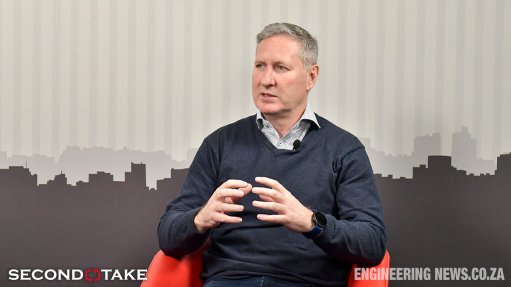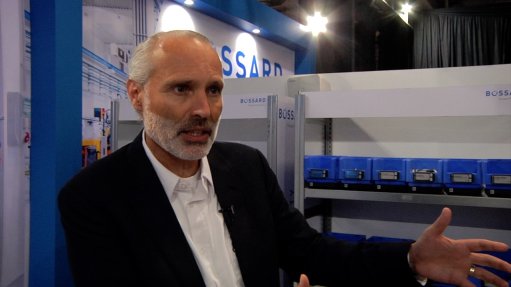The NEMLA: defining "waste" - implications for project planning.
This article has been supplied.
“The National Environmental Management Laws Amendment (NEMLA) Bill was assented to President Cyril Ramaphosa on 24 June 2022, marking this a significant milestone for environmental justice in South Africa.
Once the National Environmental Management Laws Amendment Act is promulgated, it will bring about a substantial change in South African environmental law”.The proclamation date has not yet been determined, but it is only a matter of time…
(Showroom): One of the aims of the NEMLA can be viewed as preventing non-compliance through the promulgation of legislation that introduces stricter offenses, heftier fines, and/ or more severe penalties resulting in criminal prosecution for contravening the law.
Another focus area to be considered when NEMLA is promulgated is a change in the definition of the term "waste."
As environmental consultants, without excluding businesses and the general public, mentioning the amendment to the definition of "waste" appears to be a light at the end of the tunnel. The long anticipated change to a definition that is so often misunderstood and misinterpreted will finally be clearly defined to be understood by all.
Unfortunately, the change is unlikely to resolve the current uncertainty in conclusively defining the term "waste," particularly in relation to reuse, recycling, and recovery, and disposing of waste as a last resort.
The current definition of “waste” as per the National Environmental Management Waste Act, 2008 (Act No. 59 of 2008) (NEM:WA) states:
a. any substance, material or object, that is unwanted, rejected, abandoned, discarded or disposed of, or that is intended or required to be discarded or disposed of, by the holder of that substance, material or object, whether or not such substance, material or object can be re-used, recycled or recovered and includes all wastes as defined in Schedule 3 to this Act; or
b. any other substance, material or object that is not included in Schedule 3 that may be defined as a waste by the Minister by notice in the Gazette, but any waste or portion of waste, referred to in paragraphs (a) and (b), ceases to be a waste-
i. once an application for its re-use, recycling or recovery has been approved or, after such approval, once it is, or has been re-used, recycled or recovered;
ii. where approval is not required, once a waste is, or has been re-used, recycled or recovered;
iii. where the Minister has, in terms of section 74, exempted any waste or a portion of waste generated by a particular process from the definition of waste; or
iv. where the Minister has, in the prescribed manner, excluded any waste stream or a portion of a waste stream from the definition of waste.
The proposed amendment to the definition of "waste" according to the NEMLA states:
a. any substance, material or object,
i. that the generator of that substance, material or object has no further use for within its own processes, whether or not it has any commercial value for the generator, but which can be re-used, recycled, recovered or traded in by any person; or material or object—
ii. that is rejected, abandoned, discarded or disposed of, either temporarily or permanently or is intended to be discarded or disposed of by the generator of that substance, material or object, regardless of whether or not that substance, material or object has any commercial value for the generator or can be re-used, recycled, recovered or traded in by any person; or
(b) any other substance, material or object that may be defined as a waste by the Minister by notice in the Gazette; but any waste or portion of waste, referred to in paragraphs (a) and (b), ceases to be a waste—
(aa) once it is re-used, recycled or recovered or traded in by the holder of that waste or portion of waste in accordance with a condition stipulated in a valid waste management licence, where applicable, or in accordance with an applicable norm or standard made in terms of this Act; or
(bb) where the Minister has, in the prescribed manner, excluded the holder of any waste stream or a portion of a waste stream from the definition of waste, enabling the holder thereof to trade in the excluded waste stream or portion of the excluded waste stream, provided that the holder has satisfied the requirements of proving the environmentally safe use of the waste stream or portion of waste stream by it or any other person and committed to provide the Minister with annual reports of the use thereof;’’.
Since Schedule 3 will be repealed, associated definitions will be moved to Section 1, the definition of "waste," is undergoing a complete overhaul. Some additional definitions for “commercial value” and “trade in” will be added.
Commercial value is defined as “ the retail value a thing would have if it were offered for sale”.Trade in is defined as “buying, selling or bartering”.
The definitions for “residue stockpiles” and “residue deposits” will be excluded from the definition of waste. However, any waste management licences issued for residue stockpiles and/or residue deposits will remain valid until the licence validity lapse.
The proposed change to the definition of the term "waste" will result in many materials and substances that are easily overlooked being classified as “waste”.
In addition, if certain thresholds of these “waste” be exceeded, a waste management licence must be applied for, and obtained from the relevant competent authority. Following the promulgation of the NEMLA, the competent authorities will be inundated with waste management licence applications to prevent non-compliance.
In order to avoid legal implications as a result of the inevitable legislation change, the public and businesses need to become acquainted with the requirements of the NEMLA to ensure they are not caught off guard when this Act is promulgated in the near future.
Comments
Press Office
Announcements
What's On
Subscribe to improve your user experience...
Option 1 (equivalent of R125 a month):
Receive a weekly copy of Creamer Media's Engineering News & Mining Weekly magazine
(print copy for those in South Africa and e-magazine for those outside of South Africa)
Receive daily email newsletters
Access to full search results
Access archive of magazine back copies
Access to Projects in Progress
Access to ONE Research Report of your choice in PDF format
Option 2 (equivalent of R375 a month):
All benefits from Option 1
PLUS
Access to Creamer Media's Research Channel Africa for ALL Research Reports, in PDF format, on various industrial and mining sectors
including Electricity; Water; Energy Transition; Hydrogen; Roads, Rail and Ports; Coal; Gold; Platinum; Battery Metals; etc.
Already a subscriber?
Forgotten your password?
Receive weekly copy of Creamer Media's Engineering News & Mining Weekly magazine (print copy for those in South Africa and e-magazine for those outside of South Africa)
➕
Recieve daily email newsletters
➕
Access to full search results
➕
Access archive of magazine back copies
➕
Access to Projects in Progress
➕
Access to ONE Research Report of your choice in PDF format
RESEARCH CHANNEL AFRICA
R4500 (equivalent of R375 a month)
SUBSCRIBEAll benefits from Option 1
➕
Access to Creamer Media's Research Channel Africa for ALL Research Reports on various industrial and mining sectors, in PDF format, including on:
Electricity
➕
Water
➕
Energy Transition
➕
Hydrogen
➕
Roads, Rail and Ports
➕
Coal
➕
Gold
➕
Platinum
➕
Battery Metals
➕
etc.
Receive all benefits from Option 1 or Option 2 delivered to numerous people at your company
➕
Multiple User names and Passwords for simultaneous log-ins
➕
Intranet integration access to all in your organisation



















